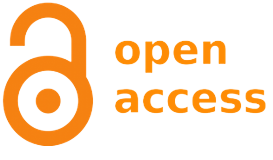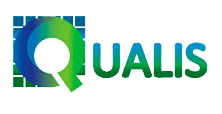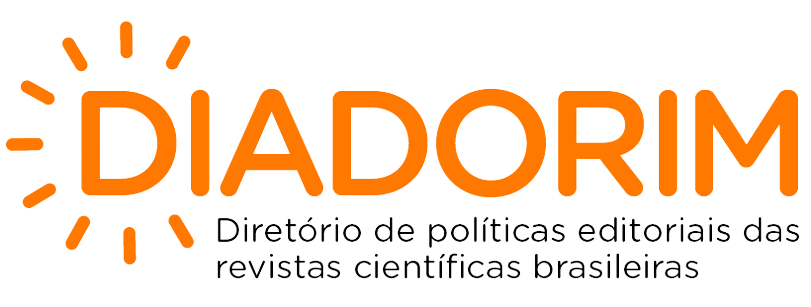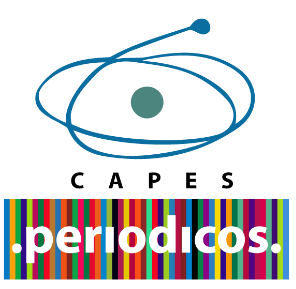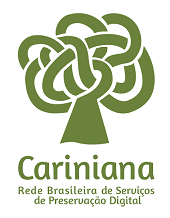The National Commission for Truth to right to the truth: the discursive validation of collections in libraries
DOI:
https://doi.org/10.5433/2317-4390.2015v4n1p31Keywords:
Truth, The National Commission for Truth, Collection Development Policy, Professional informationAbstract
Introduction: It analyzes the concept of information, truth and discursive validity. It proposes the formalization and review of the Collection Development Policy in view of the informational ethics, National Commission for Truth and censorship.Objective: Discusses the position of the acting of the professional information, a socially responsible manner, before a new setting and performance through a collection development policy with ethical decisions of which the truths will be part of the collection.
Methodology: The theoretical framework of this article is to analyze the complexity of the issue of truth by Jürgen Habermas and Michel Foucault, under the aegis of the philosophy of language and consciousness, respectively. First will be discuss under the critical focus the relationship between information and truth. Later, the historical facts of the National Truth Commission will be brought, the truth in libraries, and finally, the discursive validation of the collection development.
Results: Through Habermas, using the theoretical framework of intersubjective learning through language, ie, the resident speech at the possibility of mutual understanding and prevalence of truth. Have the courage to say and seek the truth, suggested by Foucault, are postures that make up the ethics of a professional who is sympathetic to the human dignity of each member of their community.
Conclusions: The information professionel has a social responsibility to be the embodiment of the soul of a society and its democratic assumption. Its relevance finds in the fact of govern the potential of these collections in order to promote truth, without which its action would lose the moral and ethical bias.
References
AMORIM, Celso. Oficio nº 10944 de 19 de setembro de 2014 do Gabinete do Ministério da Defesa Comissão Nacional da Verdade. Brasília, 2014.
BANNELL, R. I. Do “círculo mágico da linguagem” à realidade: uma análise crítica da pragmática da aprendizagem de Jürgen Habermas. Ethica, Rio de Janeiro, v. 16, n. 1, p. 69-113, 2009.
BRASIL. Decreto-Lei nº 1.077, de 26 de janeiro de 1970. Disponível em: http://www.planalto.gov.br/ccivil_03/Decreto-Lei/1965- 1988/Del1077.htm. Acesso em: 28 de junho de 2015.
BRASIL. Lei nº 12.528, de 18 de novembro de 2011. Disponível em: http://www.planalto.gov.br/ccivil_03/_Ato2011- 2014/2011/Lei/L12528.htm. Acesso em: 28 de junho de 2015.
BRIET, S. Qu’est-ce que la documentation? Paris: Édit - Éditions Documentaires Industriales et Techniques, 1951. 48 p. Disponível em: http://martinetl.free.fr/suzannebriet/questcequeladocumentation/briet.pd f/. Acesso em: 10 nov. 2009.
BRITO, A. B. de. Justiça transicional e uma política de memória: uma visão global. Revista Anistia Política e Justiça de Transição, Brasília, n. 1, p. 56-82, jan./jun. 2009.
BUCKLAND, M. K. Information as thing. Journal of the American Society for Information Science. v. 45, n. 5, p. 351-360, 1991.
DAY, Ronald. Information ethics: normative and critical perspectives. Rio de Janeiro, 2015. (Palestra proferida no Programa de PósGraduação em Ciência da Informação, IBICT, na disciplina Ética e Informação).
DECCA, Edgar Slavadori. 1930: o silêncio dos vencidos. Campinas, SP: Brasiliense, 2004.
FIGUEIREDO, Nice Menezes de. Desenvolvimento e avaliação de coleções. Rio de Janeiro: Rabiskus, 1993.
FOUCAULT, Michael. A coragem da verdade. São Paulo: Martins Fontes, 2014.
GRAMSCI, Antonio. Concepção dialética da história. Rio de Janeiro: Civilização Brasileira, 1978.
HABERMAS, Jürgen. Pensamento pós-metafísico: estudos filosóficos. Rio de Janeiro: Tempo Brasileiro, 1990.
HABERMAS, Jürgen. Verdade e justificação: ensaios filosóficos. São Paulo: Edições Loyola, 2004a.
HABERMAS, Jürgen. Consciência moral e agir comunicativo. Rio de Janeiro: Tempo Brasileiro, 1989.
HABERMAS, Jürgen. A ética da discussão e a questão da verdade: estudos de teoria política. 3. ed. São Paulo: Martins Fontes, 2004b.
JACOB, Christian. Ler para escrever: navegações alexandrias. In: BARATIN, Marc; JACOB, Christian (org.). O poder das bibliotecas: a memória dos livros no Ocidente. Rio de Janeiro: Ed. UFRJ, 2000.
LIMA, Regina Célia Montenegro de; FIGUEIREDO, Nice Menezes de. Seleção e aquisição: da visão clássica à moderna aplicação de técnicas bibliométricas. Ci. Inf., Brasília, v, 13, n. 2, p. 137-50, jul./dez. 1984.
MACHADO, Ana Maria Nogueira. Informação e controle bibliográfico: um olhar sobre a cibernética. São Paulo: Editora UNESP, 2003.
MARCELINO, Mariane A. A ditadura militar e os livros didáticos de história. Criciúma: UNESC, 2009.
MARX, Karl; ENGELS, Friedrich. A Ideologia Alemã. São Paulo: Centauro, 2002.
MURGUIA, Eduardo Ismael. Documento e instituição: produção, diversidade e verdade. In: FREITAS, Lídia S.; MARCONDES, Carlos H.; RODRIGUES, Ana Célia (Org.). Documento: gênese e contexto de uso. Niterói, RJ: EdUFF, 2010. p. 123-140.
ORTEGA, Cristina Dotta; LARA, Marilda Lopes Ginez de. A noção de documento: de Otlet aos dias de hoje. DataGramaZero - Revista de Ciência da Informação, Rio de Janeiro, v. 11, n. 2, artigo 3, abr. 2010.
PINHEIRO, Ana Virginia. Produção do Registro do Conhecimento: planos de aulas, Rio de Janeiro: [s.n.], 2006.
SILVA, Marcelly Chrisostimo de Souza. Censura durante a ditadura militar no Brasil e seu impacto no exercício da Biblioteconomia: um estudo sobre a atuação dos conselho profissionais. Rio de Janeiro: UNIRIO, 2014.
VERGUEIRO, Waldomiro. Censura e seleção de materiais em bibliotecas: o despreparo dos bibliotecários brasileiros. Ci. Inf., Brasília, 16 (1), p. 21-26, jan./jun. 1987.
VERGUEIRO, Waldomiro. Desenvolvimento de coleções. São Paulo: Polis, 1989.
VERGUEIRO, Waldomiro. Seleção de materiais de informação. 3. ed. Brasília: Briquet de Lemos Livros, 2010.
Downloads
Published
How to Cite
Issue
Section
License
A revista se reserva o direito de efetuar, nos originais, alterações de ordem normativa, ortográfica e gramatical, com vistas a manter o padrão culto da língua e a credibilidade do veículo. Respeitará, no entanto, o estilo de escrever dos autores. Alterações, correções ou sugestões de ordem conceitual serão encaminhadas aos autores, quando necessário.
O conteúdo dos textos e a citação e uso de imagens submetidas são de inteira responsabilidade dos autores.
Os trabalhos publicados passam a ser propriedade da revista Informação& Profissões, ficando sua reimpressão total ou parcial sujeita a autorização expressa da revista. Em todas as citações posteriores, deverá ser consignada a fonte original de publicação, no caso a Informação&Profissões.




